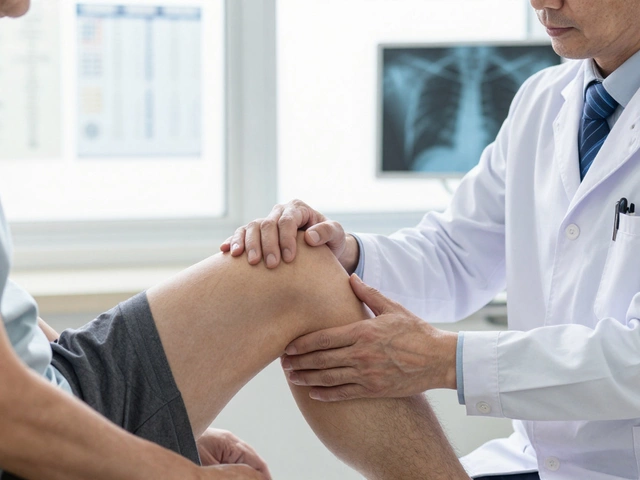Looking for top-notch medical treatment abroad? Discover which country is leading the charge in healthcare excellence. This article explores why some nations excel in medical services and what factors contribute to their global reputation. Whether it's advanced technology, skilled professionals, or cost-effectiveness, find out what makes these countries stand out. Get practical tips on making the most of your medical journey.
Read MoreTop Medical Treatment: What Works Best for Pain, Surgery and Healing
If you’re hunting for the most reliable ways to beat pain or bounce back after an operation, you’ve landed in the right spot. Below we break down the key ideas that show up across our top articles, so you can pick the right path for your body.
Quick Wins for Pain Relief
First off, pain doesn’t have to rule your life. Simple changes—like cutting inflammatory foods, using heat or cold, and adding an Ayurvedic herb such as Ashwagandha (if it’s safe for you)—can lower the heat that fuels aches. For joint or bone pain, a visit to a bone doctor (orthopedic) helps you get a proper diagnosis and the right medication or physiotherapy plan.
When pain follows surgery, it usually peaks in the first few days and then eases. Good news: modern anesthetic techniques, nerve blocks and prescribed pain meds can keep you comfortable. If you’re worried about long‑term use, talk to your doctor about non‑opioid options like NSAIDs, gabapentin or targeted physiotherapy.
What to Expect After Major Surgeries
Heart, knee or bone surgeries each have their own timeline. After heart surgery, most patients stay in the hospital for 4‑7 days, then start cardiac rehab to regain stamina. Knee replacement pain often lasts 4‑6 weeks, with milestones such as walking without crutches indicating progress.
Bone surgery pain can feel sharp for the first 48 hours, then turn into a dull ache that fades over weeks. Staying active—under a therapist’s guidance—helps reduce scar tissue and speeds up healing. Remember to keep follow‑up appointments and ask your surgeon the specific signs that mean you’re on track.
For any operation, the biggest factors are how well you follow post‑op instructions and whether you keep a healthy diet. Protein‑rich foods, vitamin D and calcium support tissue repair, while staying hydrated helps flush out medication by‑products.
Beyond the big procedures, minor surgeries like arthroscopy or minor skin excisions usually need just a day or two of recovery. They’re low‑risk, but you still need to watch for infection signs—redness, swelling or fever.
Finally, if you’re considering weight‑loss pills or diabetes meds like Metformin, get the right specialist. An endocrinologist or bariatric doctor can guide you on safe dosages and monitor side effects.
Use this overview as a checklist when you read the detailed articles on our site. Pick the treatment that fits your condition, ask the right questions during appointments, and stay on top of recovery steps. Your health journey is personal—make sure the choices you make are backed by solid advice and real‑world results.





